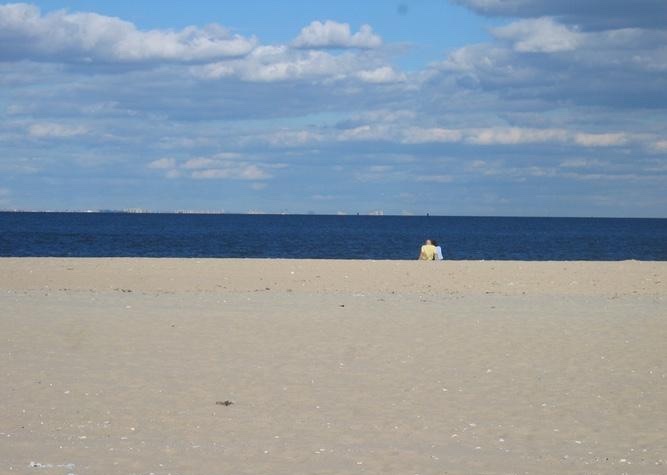How can we find a sustainable balance between striving for achievement and embracing rest, while addressing our underlying beliefs about worth and productivity?
A weakness for me is that with each day, I don’t know when to stop striving.
Sometimes I fail to plan; I spend the whole day chasing the next, immediate thing todo. Sometimes I plan to tackle too much; I power through thing after thing until mentally exhausted. Sometimes I manage to plan just the right amount; But then I have a terrible time simply stopping.
This applies not just to fitness, but everywhere in our lives: with work, learning, relationships, and more. It’s great to do the work — but if you’re not giving yourself adequate rest, or time to recover, you’re going to grind yourself into the ground. It’s much worse for your long-term progress.
~ Leo Babauta, from The Surprising Value of Rest
I’m really bad at simply sitting in the sense of accomplishment. Rest and recovery would happen once I stop. But that’s exactly how I injure myself: I don’t simply stop.
Seek the truth: It always shows us what we should do, what we should not do, and what we should stop doing.
~ Leo Tolstoy
I think at the root of my striving lies a mistake about worth. Somewhere I came to believe that it was important to do stuff. That there was a moral imperative (“one should”) to do as much stuff as one can. These days I’m not sure about that. If we want to turn this into a thought experiment: What if you didn’t need to do anything, to cover your basic costs of living? (Say, you won the lottery.) Is there still an imperative to do anything at all?
Today, though, it’s become commonplace to think of work and rest as opposites. Work is active and valuable: it’s where we prove our worth and create a legacy. Popular books such as What You Do Is Who You Are(2019) by the venture capitalist Ben Horowitz carry the implication that being and doing are synonymous. Busyness is a badge of honour, even a sign of moral superiority. Rest, in contrast, is often treated as if it’s passive and pointless. Indeed, I’ve noticed many people hardly think of rest as its own thing. It’s just a negative space defined by the absence of work.
~ Alex Soojung-Kim Pang, from How to rest well
Perhaps I’m overreacting. Having spent decades with the pendulum swung all the way over to “maximum effort”, I feel uncomfortable as it’s now swung over to the “all rest” side. So which is wrong, the being uncomfortable, or being in the resting?
What makes a river so restful to people is that it doesn’t have any doubt—it is sure to get where it is going, and it doesn’t want to go anywhere else.
~ Hal Boyle
Maybe a pendulum is a terrible metaphor. Because there’s no way I’m letting the balance “swing” back to the insanity of busyness. Maybe it’s better to just say there’s an arc to one’s life; It goes through distinct ages where one first carves one’s path through the world, then one becomes more fluid, and finally one reaches the age of acceptance? If it’s a simple arc, then my shift to gliding makes perfect sense and my error is in being uncomfortable in resting.
If I’m being honest, I told this story to myself more than anyone else. I needed an explanation for why a well I’d been drawing from all my life had suddenly run dry, why things I had cared about seemed so abruptly to matter little at all. I had given a lot of fucks, some wantonly and capriciously, some thoughtfully and cautiously and tenderly, but no matter how they were given, they were given up. They were gone.
~ Mandy Brown, from A unified theory of fucks
For a while, I too thought I had no more of them to give. (I do agree with Brown.) But it turned out I had simply trained everyone around me to rely on me. I had become accustomed to being the person who swoops in to the rescue: The helper archetype of the Karpman Drama Triangle. That way leads to burnout.
There is a tide in the affairs of men
~ “Brutus,“ from Shakespear’s Julius Caesar
Which, taken at the flood, leads on to fortune;
Omitted, all the voyage of their life
Is bound in shallows and in miseries.
On such a full sea as we now afloat;
And we must take the current when it serves,
Or lose our ventures.
The more Shakespear I read, the more I think perhaps I should see the plays staged. Is there any sort of arranged “set” of them where one can start? That should totally be a thing.
The stories we tell ourselves about ourselves are almost always wrong. That’s their nature. The purpose of these self-conceived narratives is to keep us comfortably unconscious. We tell ourselves these stories so we can avoid the pain of diving deep, to the real story underneath.
~ Steven Pressfield, from Whatever You Think You Know About Yourself, You’re Wrong
The artist’s journey is the dive through the faux story to the true one.
I need to do more reading and writing. Not “need” as in, “I feel like I should,” but rather, literally. I always feel better after I do some reading, and after I do some writing. For a long time I was worried that the well I go to when writing would dry up if I tried to draw from it too quickly. Nope. It turns out that Ray Bradbury was right about the trick being to tip ourselves over.
Until next time, thanks for reading.
ɕ
